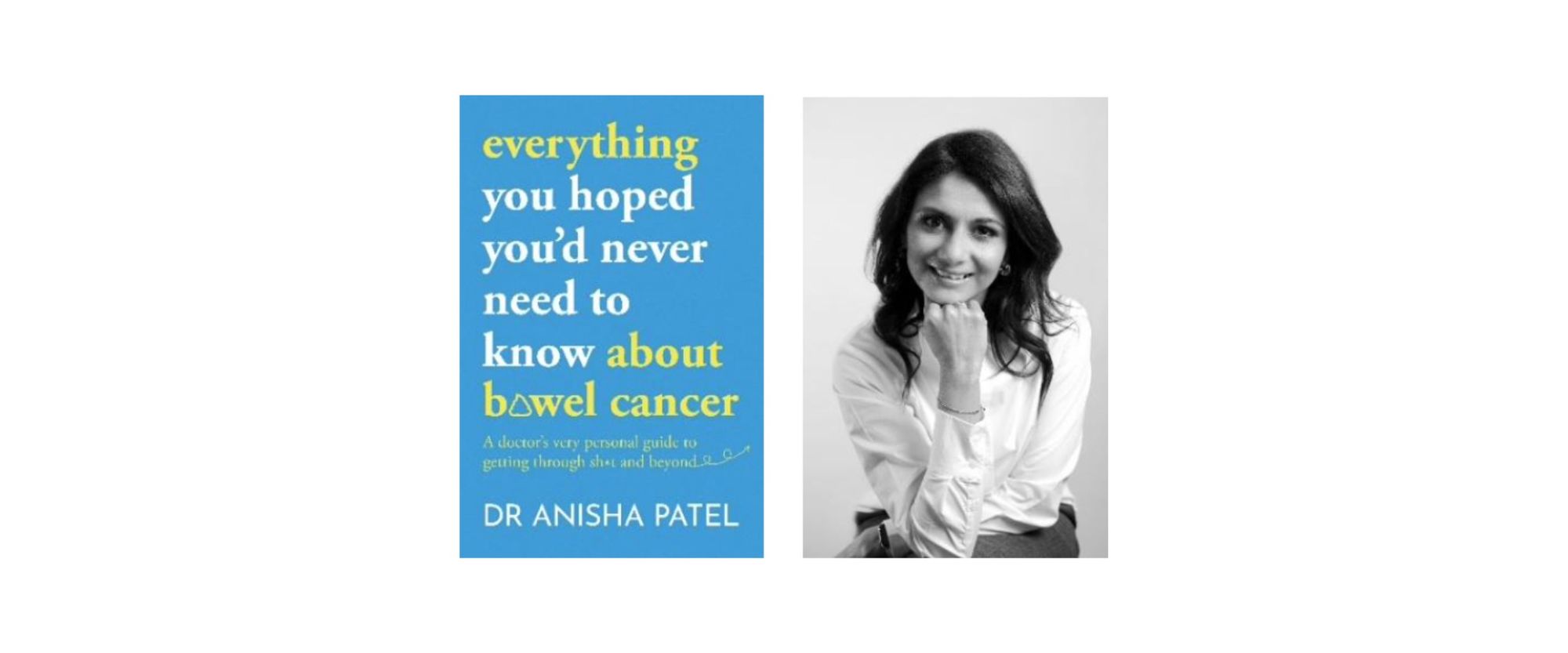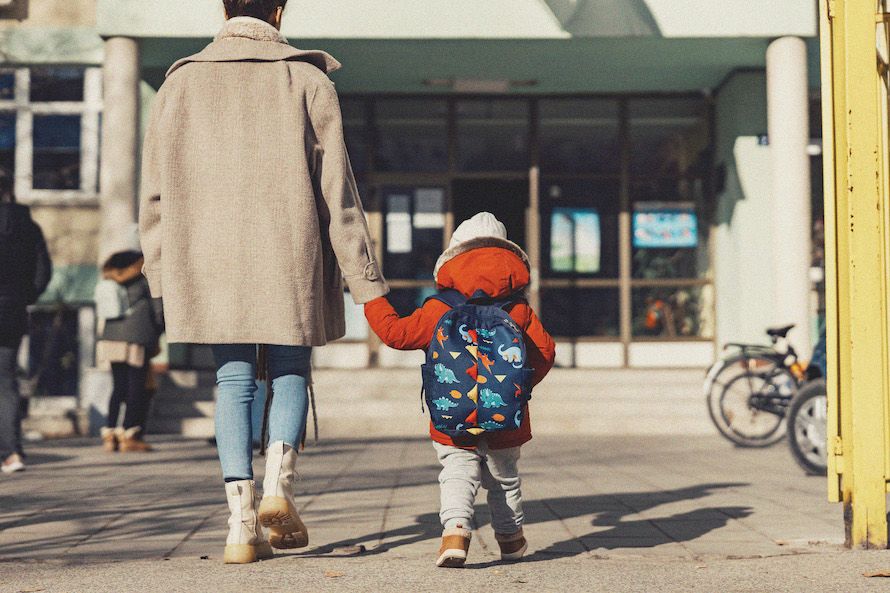Following a stage 3 bowel cancer diagnosis in 2018, doctor, speaker, and health educator Dr Anisha Patel has released an informative and insightful book, Everything you hoped you’d never need to know about bowel cancer, to support others going through this life-changing diagnosis.
With so many unforeseen and unimaginable challenges on the journey of discovering and treating cancer, here, we share an incredibly moving and supportive extract on how to face the monumental task of sharing the news of a cancer diagnosis with children
Looking back, this was without doubt one of the trickiest moments in my life, knowing that I was about to share information that they might not fully understand the significance of, but which undoubtedly would cause pain and heartache for all.
How you impart this information will depend on your child, their understanding and experience of illness or cancer in the past, as well as their age. You know them best. There is no right or wrong time to tell them, although it’s important to be honest as you can. If you don’t have all the answers, that’s absolutely fine, but it is important to tell them this. Some people choose to tell their children when they have a plan of action following all the results, to help ease that fear of the unknown.
We decided to tell our children the day after I was diagnosed. K and S knew something was wrong the moment we arrived back from hospital, and although as a parent your first instinct is to protect them, withholding this information when they are aware the atmosphere has changed can leave them feeling vulnerable. Phone calls were being made, my mum had suddenly turned up out of the blue, people were coming and going from the house, tears at the doorstep, flowers being left. It didn’t leave much to the imagination. Trying to explain this to the children when the reality had not sunk in, the diagnosis unprocessed, the situation incomprehensible, was near impossible.

I can’t actually remember how my children, aged six and seven, responded that particular day. The next day we were due to visit my brother-in-law for his 40th birthday. Apologies, D, not exactly how I would have wanted to wish you happy birthday – in my sleep-deprived, distracted state, our trip was in a bid to maintain as much normality as possible. As the front door opened, my daughter blurted out, ‘Mummy has cancer’ and then skipped off! We looked at each other bemused, my family in shock, but I knew this was S just processing the information given and also gauging an adult’s reaction to the remark. What I realized over time was there were many more questions to follow, including, ‘Mummy, will you die?’ A question that noone wants to hear, but in this situation, we had to face up to. Other questions included, ‘Can I get cancer?’ and ‘Daddy, you remove bowel cancers, why can’t you remove Mummy’s?’ At which point high-tech diagrams were drawn of polyps and early bowel cancers, along with video footage of endoscopies. This took their interest to another level, but I guess they are the children of medics, after all.
I’ve met parents who ask my advice, as a GP, about how to tell the children about cancer. Sometimes they don’t want to tell their children. Because they are scared. Because they want to protect them. Because they don’t know how to. Because they are worried about their reaction. What I discuss with parents is this. Being honest with them signals to the child that you trust them, that you are in this boat together. That you are a team. Together you will get to the finish line, whenever and whatever that may be. It will make them feel less anxious and give them the space to ask questions and verbalize how they feel. Doing this can reduce their fear and anxiety. I know from personal experience that it can also bring you closer as a unit, whereby you are all supporting each other. And although this surely tested their resilience, this experience has taught my children so much more and is now a part of their tapestry.
My expert psychotherapist, Danni, knows only too well the long-term implications for children if parents aren’t honest about a cancer diagnosis. For example, she explains how they can develop trust issues. It is by no means an easy conversation to have, but in the long run, you will be protecting your child(ren) and preserving your relationship with them. Not being honest may lead to fear and anxiety, as they will be aware something is wrong. They might build up ideas in their head about situations which may be unfounded – in the face of lots of whispering and maybe tears, a child is perhaps far more likely to think that ‘mummy and daddy are getting divorced’ rather than the reality of ‘mummy has cancer’.

It is also important to remember that little people have very big ears, and there have been instances when people have been discussing their cancer diagnosis with friends, or others have been chatting among themselves, and a child has overheard. In addition, the Chinese whispers that occur in the playground may reach a child who is unaware of their parent’s diagnosis, which can be devastating for the child. It is best they hear this from you as the parent.
We’ve come together to offer this list of tips for you to think about when telling children your news.
Tips: Telling children about a cancer diagnosis
-
Prepare what you are going to say at this stage. You may find that writing down what you would like to discuss helps align your thoughts. Ensure you have spoken to your medical team so you are armed with facts, and they may be able to signpost you to resources to help support the children. Avoid too much detail as it may be overwhelming, but do explain words such as ‘chemotherapy’ and ‘radiotherapy’.
-
Plan to tell them in a place where they feel comfortable and safe.
-
Use open-ended questions, for example, ‘What do you know about cancer?’, and share experiences of others they may be able to relate to.
-
Try to use the word ‘cancer’ or ‘bad cells’ rather than ‘poorly’ or ‘ill’. They may associate cancer with anyone who is feeling ‘poorly’ or ‘ill’ in the future. Generally speaking, Danni advises that those of primary school age (five and above) may be able to understand the word cancer depending on their maturity but if not, or younger, Danni suggests using the words ‘bad cells’ and ‘good cells’.
-
Prepare yourself for their reaction. Some children may look at you and then immediately ask ‘What’s for tea?’ as if they haven’t heard, others may cry or look confused. Whatever it is, be prepared that it might not be the reaction you were expecting. However, give them the time and space to process.
-
Check their understanding of what’s going on and allow them to direct the conversation with their reactions and thoughts.
-
Keep terminology simple and keep to the point, not dwelling too much on the future and the ‘what ifs’.
-
Tell all the children in the house together so no one is left feeling the burden or left out. Occasionally parents think it is best to tell the older children and hide it from the younger child, but this is quite a weight for one child to carry and it can unintentionally break trust with the other child.
-
Tell them as a family, and if you are a single-parent family, consider support from another family member or friend. Sometimes the person affected by cancer doesn’t want to be there, and that’s ok, as long as they know what is being said.
-
Use visual aids, books or websites (see Useful Resources section).
-
Explain how things may be different moving forwards while you undergo treatment.
-
You don’t have to tell them everything at once if you feel it will be overwhelming, but do check their understanding and what they have heard and absorbed. You may find you need to repeat information, especially if they are younger.
-
Allow space and time for questions with an open door policy if they have any concerns.
-
Talking to children at regular intervals keeps them from fearing the worst and avoids them feeling isolated from the family and situation.
-
Let them know not all cancers are the same and each person, even if they do have a similar cancer, will have a different experience.
-
Inform the school so they can keep an eye out for them and ensure support is available.
-
And finally, remind them they are totally loved.

Extract from ‘Everything you hoped you’d never need to know about bowel cancer’ by Dr Anisha Patel (Sheldon Press, £16.99).


Comments